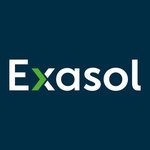Description

Exasol

Fospha
Comprehensive Overview: Exasol vs Fospha
Exasol and Fospha are both companies that operate in the data and analytics space, but they cater to different needs and industries. Here's a breakdown of each:
Exasol
a) Primary Functions and Target Markets:
- Primary Functions: Exasol is renowned for its high-performance analytics database. It offers one of the fastest in-memory systems, designed to handle large-scale data analytics quickly and efficiently. Key functions include advanced analytics, machine learning integration, and seamless data integration.
- Target Markets: Exasol primarily targets enterprises looking for high-speed data analytics solutions. Industries include finance, retail, telecommunications, healthcare, and any business that requires intensive data processing and real-time insights.
b) Market Share and User Base:
- Market Share: Exasol is particularly strong in regions such as Europe, where it originated. It competes with other data warehousing solutions like Amazon Redshift, Snowflake, and Google BigQuery, but it is more niche due to its focus on high-speed processing and analytics.
- User Base: The user base tends to be large enterprises that prioritize speed and efficiency in data handling, including companies with extensive data and analytical requirements.
c) Key Differentiating Factors:
- Speed and Performance: Exasol’s key selling point is its unmatched speed, especially for large data volumes and complex queries, leveraging in-memory analytics.
- Simplicity and Integration: It offers simplified database management and integration capabilities, which are highly valued by tech teams.
- Cost-Effectiveness: Though positioned as a high-performance solution, it often results in lower total costs of ownership due to its efficiency in resource usage.
Fospha
a) Primary Functions and Target Markets:
- Primary Functions: Fospha is a marketing attribution software vendor. It helps businesses in understanding and optimizing their marketing spend by attributing conversion credits across different customer touchpoints.
- Target Markets: It targets data-driven marketing teams within medium to large enterprises. Industries where digital marketing is a cornerstone, such as e-commerce, digital agencies, and fast-moving consumer goods (FMCG), are primary beneficiaries.
b) Market Share and User Base:
- Market Share: Fospha operates in a competitive space with competitors like Google Analytics Attribution, HubSpot, and more specialized tools like Attribution and Bizible. Its share can be considered niche, focusing on advanced, multi-touch attribution.
- User Base: Fospha’s user base generally consists of marketing professionals and agencies that require deep insight into marketing effectiveness and are looking to optimize marketing ROI through advanced attribution models.
c) Key Differentiating Factors:
- Advanced Attribution Models: Fospha's distinguishing feature is its use of sophisticated attribution models that can give more accurate credit allocations than standard first-click or last-click models.
- Integration and Customization: Provides extensive integration capabilities with other marketing tools and platforms, allowing for customized attribution tailored to business needs.
- Data Science and ML Incorporation: Utilizes data science and machine learning to improve the accuracy of attribution and provide predictive insights.
Comparison Summary
While Exasol and Fospha both serve data-driven needs, they operate in distinct segments. Exasol offers high-speed data analytics relevant to diverse large data needs, while Fospha specializes in marketing attribution, aiming to optimize marketing spend through better understanding of customer journeys. They do not compete directly but rather serve complementary roles in the broader enterprise data and analytics ecosystem.
Contact Info

Year founded :
2000
+49 911 239910
Not Available
Germany
http://www.linkedin.com/company/exasol-ag

Year founded :
2017
+44 20 8080 9190
Not Available
United Kingdom
http://www.linkedin.com/company/fospha
Feature Similarity Breakdown: Exasol, Fospha
Exasol and Fospha are two different types of software solutions that serve distinct purposes but might share some similarities. Exasol is primarily a high-performance, in-memory analytics database, while Fospha is a marketing attribution and analytics platform. Here's a breakdown based on their features:
a) Core Features in Common
-
Data Analytics: Both Exasol and Fospha provide data analytics capabilities. Exasol offers high-performance analytics on large datasets, while Fospha provides marketing analytics for performance tracking and insights.
-
Scalability: Both platforms are designed to handle large volumes of data and support scalability to meet the needs of growing businesses.
-
Integration Capabilities: They both support integrations with various data sources. Exasol integrates with data-driven applications using various connectors and APIs, and Fospha integrates with marketing platforms to gather data.
-
Data Visualization: While Exasol itself doesn't provide visualization tools, it easily connects with visualization platforms like Tableau, Power BI, and others. Fospha, on the other hand, offers built-in reporting and visualization tools tailored for marketing data.
b) User Interface Comparison
-
Exasol UI: Exasol primarily functions at the backend level as a database, so user interaction is often through third-party tools or SQL interfaces. The user experience primarily depends on the frontend integrations or data visualization tools employed by the user.
-
Fospha UI: Fospha provides a user-friendly interface with dashboards and reports specifically designed for marketing analytics. The interface is typically designed to be accessible to marketers, with a focus on data visualization and ease of use.
c) Unique Features
-
Exasol Unique Features:
- In-Memory Database: Offers high-speed analytics with its in-memory computing capabilities.
- Parallel Processing: Uses massive parallel processing to accelerate query performance.
- Advanced SQL Capabilities: Supports complex SQL queries and is optimized for big data workloads.
-
Fospha Unique Features:
- Marketing Attribution Models: Provides advanced multi-touch attribution models to analyze customer journeys and marketing spend effectiveness.
- Customer Journey Analysis: Offers insights into customer behavior across various touchpoints to optimize marketing strategies.
- Unified Marketing Data: Aggregates data from different marketing channels to provide a single overview of marketing performance.
Each product serves different core purposes—Exasol being more database and IT-focused, while Fospha is marketing-centric. Therefore, the choice between them would largely depend on the specific business needs related to data processing and marketing analytics.
Features

Not Available

Not Available
Best Fit Use Cases: Exasol, Fospha
Exasol and Fospha cater to different needs within the data analytics and marketing analytics space, and their best fit use cases can vary substantially based on industry requirements and company sizes.
Exasol
a) For what types of businesses or projects is Exasol the best choice?
Exasol is an analytic database management system that is particularly well-suited for scenarios that demand high-performance data analytics. Key use cases include:
- Large Enterprises and Organizations: Companies dealing with large volumes of data that require rapid analytics processing. Exasol's high performance provides faster insights, making it ideal for big data applications.
- Real-Time Analytics: Businesses that need quick processing and querying for real-time decision-making, such as financial services or e-commerce platforms that rely on current data analytics for market trends or customer behavior.
- Advanced Analytics and BI Projects: Organizations looking to implement complex analytics and business intelligence projects. With its support for Python, R, and other advanced analytics tools, Exasol is well-suited for data science initiatives.
- Data Warehousing Solutions: Companies seeking robust data warehousing capabilities that require flexible scaling and high-speed querying.
d) Industry Verticals and Company Sizes for Exasol
Exasol is versatile enough to cater to various industry verticals, such as finance, retail, telecommunications, and more. Its ability to handle large-scale data efficiently makes it suitable for medium to large enterprises. Smaller organizations might find it excessive unless they forecast rapid growth or specialize in data-heavy fields.
Fospha
b) In what scenarios would Fospha be the preferred option?
Fospha is a marketing attribution platform that helps businesses understand customer journeys and optimize marketing strategies. It is best suited for:
- E-commerce and Retail: Businesses focused on understanding multi-channel customer journeys to improve targeted marketing and optimize ad spend.
- Marketing Agencies: Agencies implementing attribution models to provide data-driven insights for clients, optimizing performance across various digital channels.
- Consumer Goods: Companies wanting to attribute sales and conversions more accurately to various marketing efforts to enhance strategy and budget allocation.
- Digital Marketing Teams: Internal teams within organizations seeking a unified view of marketing performance analytics across various digital platforms.
d) Industry Verticals and Company Sizes for Fospha
Fospha primarily caters to businesses in industries like retail, e-commerce, and digital marketing, where understanding customer behavior across multiple touchpoints is crucial. It is equipped to serve both small to medium-sized businesses and larger enterprises that engage heavily in digital advertising and require intricate attribution models to measure marketing ROI effectively.
Summary
While Exasol and Fospha serve distinct purposes, both are crucial in leveraging data for business insights. Exasol excels in powerful data processing and analytics across various sectors, predominantly in larger enterprises. In contrast, Fospha specializes in marketing analytics, making it essential for understanding and optimizing customer journeys, mainly benefitting e-commerce and digital marketing-focused companies.
Pricing

Pricing Not Available

Pricing Not Available
Metrics History
Metrics History
Comparing teamSize across companies
Conclusion & Final Verdict: Exasol vs Fospha
When comparing Exasol and Fospha, it's essential to consider several factors, including performance, scalability, cost, and specific use cases. Both products have their unique strengths and weaknesses, which cater to different business needs.
a) Considering all factors, which product offers the best overall value?
Exasol tends to offer the best overall value for businesses that require a high-performance analytical database with robust capabilities in handling large volumes of data with speed and efficiency. Its strength lies in providing rapid analytics, even on your most complex data sets. This makes it a favorable option for enterprises that need to leverage big data quickly.
Fospha, on the other hand, provides better value for businesses primarily focused on marketing performance measurement and customer journey analytics. It excels in aggregating and analyzing marketing data from various channels to provide insights that can enhance marketing strategies and improve ROI.
b) Pros and Cons of Choosing Each Product
Exasol
-
Pros:
- High-performance database management with fast query speeds.
- Scalability to handle large data sets efficiently.
- Strong support for data integration from various sources.
- Advanced analytical capabilities that are well-suited for enterprises with complex data needs.
-
Cons:
- Higher learning curve due to its complexity and advanced features.
- May involve higher costs, especially when scaling up to handle extensive data analytics tasks.
- Primarily focused on database and analytics; may require additional tools for a complete marketing analytics solution.
Fospha
-
Pros:
- Specially designed for marketing performance measurement and analytics.
- Provides clear insights into customer journeys across multiple channels.
- Easier to implement for businesses primarily looking at marketing analytics solutions.
- Offers actionable insights that help improve marketing ROI.
-
Cons:
- More limited in scope if compared to a full-fledged analytical database solution; best for specific marketing use cases.
- Might not handle very large data sets or require integration with more robust databases for extensive data analytics needs.
- Specific functionality may not extend beyond marketing analytics, limiting its use for other types of data analysis.
c) Recommendations for Users Deciding Between Exasol vs. Fospha
-
Identify Your Primary Use Case:
- Choose Exasol if your business requires a comprehensive and high-performance database capable of handling complex and large-scale data analytics beyond just marketing.
- Opt for Fospha if the primary need is to measure and optimize marketing effectiveness across multiple channels efficiently.
-
Consider Future Scalability:
- Evaluate your business’s anticipated growth and whether you might need to scale up your data operations significantly, in which case Exasol could be more suitable.
- For marketing-specific analytics with planned growth primarily in marketing channels, Fospha should suffice.
-
Evaluate Cost vs. Benefit:
- Weigh the cost implications against the value provided by each tool. Consider not only initial costs but also long-term expenses associated with scaling and additional features or integrations.
-
Integration Needs:
- Check how well each tool integrates with your existing systems and whether additional integration solutions are required.
Ultimately, choosing between Exasol and Fospha should align with your business's data priorities, required analytics capabilities, and strategic goals. Both have their domains of excellence, and aligning these with your organization’s needs will ensure you derive the most value from your investment.
Add to compare
Add similar companies




